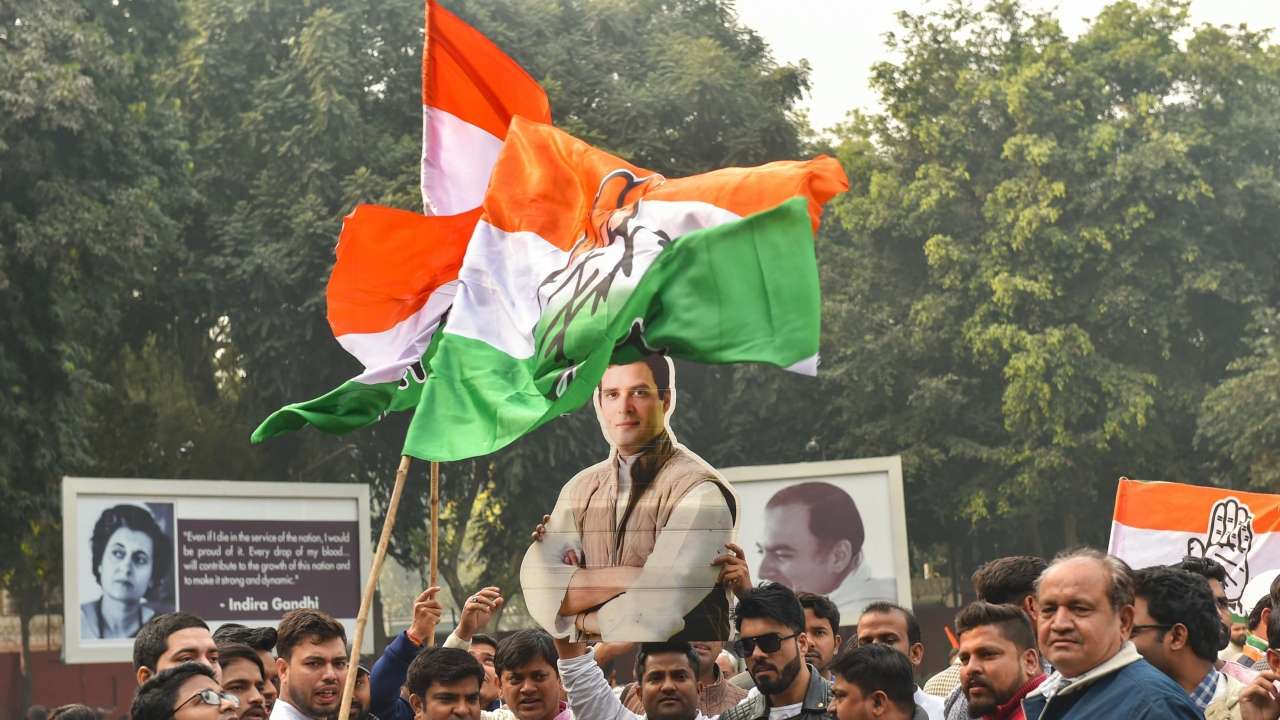
Rahul: Liberal, well meaning but may not be taken seriously

The Congress election manifesto is a reflection of its leader Rahul Gandhi’s personality. It is well-meaning, liberal, reformist but also a bit naïve in its approach towards critical issues like employment and rural distress. And like him, since it has come in the middle of an election being fought on issues like Hindutva and Pakistan, it is unlikely to be heard by India’s masses.
In the climactic stages of the 2018 biopic The Darkest Hour, Winston Churchill is asked why he changed his mind about negotiating with Adolf Hitler. Churchill replies: “Those who don’t change their mind, change nothing.” A similar thought process has dictated the Congress thinking on three issues—the Armed Forces Special Protection Act (AFSPA), sedition law and criminal defamation.
Till 2014, when UPA was in power, it blocked several demands to revise the AFSPA. It had also ignored recommendations of a five member committee led by Justice Jeevan Reddy. The committee had recommended the act be repealed, powers of armed forces be clearly defined and grievance cells be set up in places where armed forces are deployed. The Congress manifesto says it will review AFSPA to ensure human rights are protected while addressing India’s security concern. A similar rethink is visible in its promise of abolishing the sedition law and criminal contempt, two British-era tools that have been misused by successive governments.
It is obvious that the Congress has realised civil liberties need protection in a democracy and draconian laws require either a revision or have to be repealed. The party’s stand on these issues is bold considering the current state of polity in India where any attempt to talk about the security forces is considered sedition and anti-national. Notice the BJP’s reaction to the AFSPA promise—its leaders, including Narendra Modi, have flayed the Congress for “trying to weaken security forces” even when the manifesto talks about consulting the army before making any changes.
Since the BJP’s strategy revolves around branding anybody other than its leaders as “anti-national”, the Congress could have remained silent on these three issues. In 2016, when several students of the Jawaharlal Nehru University were booked for sedition, Gandhi had visited the campus. For his support to the students, he was called part of the “tukde-tukde gang”—those planning to break up the country. That he has chosen to take a clear stand on these contentious issues, in spite of fears of a vicious attack from the BJP, underlines his commitment to a liberal democracy.
Some other key promises were made before the manifesto was released, but they have been reiterated in the document. Its promise of Rs 72,000 per annum to India’s poorest has already been discussed threadbare. But, by including it in the manifesto, the Congress has tried to remind India of the UPA era when such welfare schemes were part of what was called Sonianomics. How it would be implemented, where the Congress find additional resources is not clear. But, it has at least made the government’s Rs 6000 per annum cash transfer to farmers pale in comparison.
The Congress has also reaffirmed its commitment to simplify Goods and Services Tax—a genie let out of the bottle, incidentally, by the UPA government—and exempting new businesses from taking permissions for three years. Both these ideas are reformist and, if implemented, would contribute to growth and help in employment generation.
Some of the other promises, like not holding farmers guilty for loan defaults and filling up 4 lakh vacancies by March 2020, though well-meaning, are dim-witted. The idea of doling out loans that won’t be repaid is disastrous for banks. In the run up to the assembly elections in Rajasthan, MP and Chhattisgarh, the party had promised loan waiver within 10 days of coming to power. In all these states, the promise has not been fulfilled, underlining its impracticality. Similarly, filling up 4 lakh vacancies within the current financial year would be impossible.
The problem, however, with Gandhi is that he is still not taken seriously, even when his ideas make a lot of sense. Since he has been derided—most of the times wrongly—for having hare-brained ideas, a populist manifesto high on welfare schemes would be seen with scepticism. The problem is compounded because of two additional factors: one, the absence of a detailed plan on how some of the schemes would be implemented, and two, the reluctance of the masses to look beyond faux issues like nationalism.
The tagline of the Congress manifesto is, we will deliver. Gandhi’s biggest challenge on the campaign trail would be to convince voters, yes, he can.

